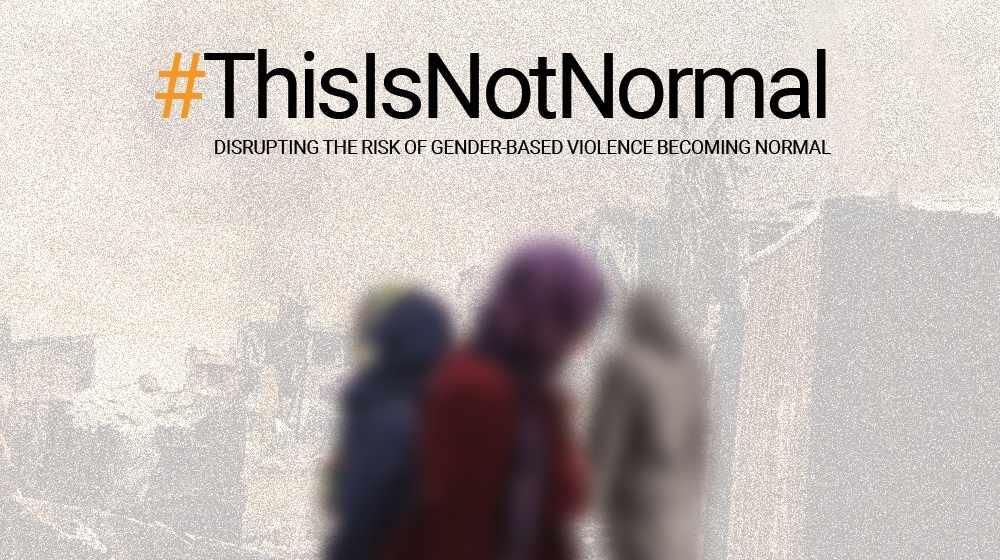UNFPA launches #ThisIsNotNormal — a campaign to reject the normalization of gender-based violence
“Women and girls experience violence and often accept it, not knowing that it is not normal,” says Serena, a young woman from Lebanon — one of many who spoke to UNFPA over the course of 2021 to highlight some of the challenges women and girls are facing in their communities. Collectively, they confirmed what women and girls worldwide have been saying for years: that violence against them is becoming so rampant and unchecked — particularly in the aftermath of the COVID-19 pandemic — that it risks becoming normalized.
The voices of Serena and millions of other women and girls have come together to inspire the launch of #ThisIsNotNormal — a global UNFPA campaign that aims to disrupt the risk of gender-based violence becoming normal. The campaign was initially launched in the Arab Region on International Day for the Elimination of Sexual Violence in Conflict 2022 to help amplify these voices and mobilise global action against such normalization. In addition to featuring statements by women and girls who have survived gender-based violence, the campaign incorporates the voices of artists, activists, journalists, humanitarians, and other regional influencers hoping to highlight the situation and inspire real change.
“This needs to stop,” says Natalia Kanem, UNFPA Executive Director, in a video launching the #ThisIsNotNormal campaign, underscoring that violence against women and girls “is never acceptable and is not going away on its own.” Kanem urges the international community to treat gender-based violence as “a full-blown crisis” that must be stopped at all costs. The initial phase of the campaign also featured the voices of notable influencers from the Arab region, such as Ghada Saba, Joanna Arida, Maya Ammar, among others.
“We will not rest until every woman and girl feels safe, is given equal opportunities to reach her potential, and is supported by a justice system that holds perpetrators to account,” says filmmaker and activist Ala Hamdan. Hamdan echoes the words of Maya, a Syrian refugee, who says that many of her friends “are continuously harassed, beaten, and forced to marry so young even when they don’t want to.”
Harassment, intimate partner and family violence, child and forced marriage, and sexual violence and exploitation are increasingly being reported by women and girls, while new trends, such as various forms of cyber violence, have also been observed in recent years. For those who are surviving humanitarian crises, the situation is even more dire. Women and girls also report that this sense of normalization is quickly eroding their resilience as well as the fabric of their societies, which poses serious risks to sustainable peace and development.
“As a journalist, I believe I have an essential role to play in bringing these issues to light, and to stress that we as women and as a society firmly reject this trend,” says Jordanian journalist and activist Nadine Nimri after reading a statement by Lara, a survivor of domestic violence. Lara had described her life with her husband as “being a hostage in a war,” where she was frequently subjected to “beatings, insults, and unstoppable rage.” She also states that winning her freedom took “an impossible effort” given the social stigma typically faced by divorced women in her community.
“Protracted crises throughout the Arab region and beyond have taken a massive toll on every single person, but women and girls in particular are facing exponentially higher risks of gender-based violence, including sexual violence in conflict and femicide,” explains Dr. Luay Shabaneh, UNFPA Regional Director for the Arab states. “This contributes to this sense of normalization, especially if they perceive a deficit or absence in legal accountability.”
“The international community must therefore demonstrate a united front in its rejection of gender-based violence and to ensure that the human rights of women and girls, including the right to live free from violence, are prioritised,” added Shabaneh.
END


